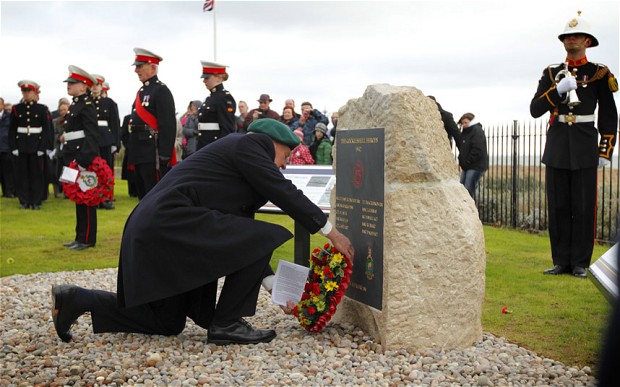70 years ago the British Royal Marines took part in a small, but vital, mission known as Operation Frankton, which was destined to move the Allies one step nearer to World War Two victory.
Operation Frankton was a commando mission designed to decimate the German-occupied French port of Bordeaux. This port in the Bay of Biscay was being heavily used by German cargo and merchant ships. In just one year during the war, vegetable and animal oils, raw materials, and 25,000 tonnes of crude rubber had been shipped to the port for the Germans’ use. The British believed that if they could attack the port it would damage the German war effort considerably.
Thirteen Royal Marines from the Royal Marines Boom Patrol Detachment (RMBPD) were tasked with the operation. The Marines and six canoes would be taken to the Gironde estuary by submarine. From there the Marines would release the canoes and make their way quietly and unnoticed into the port at Bordeaux. Their task was to then use limpet mines attached to the hulls of the ships in the harbour to blow up as many vessels as they could.
The Marines completed their mission, damaging and/or destroying six ships in the harbour. The Marines had been instructed to, after completion of the mission, make their way by land across France and over the border into Spain, from where they could return to Britain.
Only two of the Marines survived. Herbert Hasler and Bill Sparks trekked the 100 miles through France and made it into Spain, returning home to Britain later. The other Marines either died from hypothermia in the course of the mission or were caught and shot by the Nazis after the mission, The Telegraph reports.
Winston Churchill is said to have commented that without Operation Frankton the war would have been six months longer than it was, because the mission had caused real damage to the German war effort. Because of the operation, the small group of men who carried it out has become widely known for valour and courage. The group is known as the Cockleshell Heroes and a memorial to it has been built at the Royal Marines Museum in Southsea, Hampshire. The memorial was unveiled by Lord Paddy Ashdown during the commemoration, which was attended by descendants of those who took part in the mission as well as current Royal Marines and Royal Marines Cadets.
